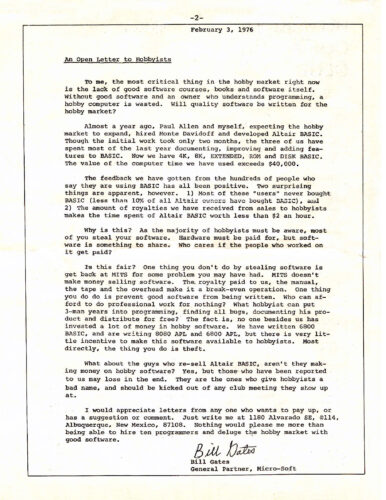Microsoft CEO Satya Nadella dropped an eXcrement (formerly known as a Tweet) at 1AM about the Jevons Paradox, apparently hoping to reassure shaken American investors that efficient AI breakthroughs will drive benefits to Azure’s centralized and inefficient AI empire.

There’s delicious irony here – Nadella just predicted his own disruption. It’s like watching Microsoft circa 2006 reassure investors about their Vista strategy (later known as the “smell of death”) meant to corner all access to the Web, just as Unix was ramping to completely eat their lunch (Linux, MacOSX, etc).

“Where do you want to go today?” Clearly not to Azure’s premium-priced AI plantation.
…a kind of digital plantation economy—featuring resource monopolies, extractive forms of exploitation, and monocrop “ecologies”—based on the “Server Farming” (aka, data center) industry through which some 70 % of the world’s Internet traffic flows. …in which the manipulation of history, the accumulation and control of ‘arable’ (digital) land, and the dispossession of social processes under quasi-feudalistic property rights encourage unequal, unsustainable, and often violent cultures and political ecologies.
History. It matters.
William Stanley Jevons, of paradox fame, wasn’t writing about maintaining monopoly power. He was documenting how efficiency improvements democratize access to technology, sparking waves of decentralized innovation that reshape entire industries. In other words if you reduce the cost of technology by half, demand may be expected to more than double. History repeatedly shows this reshaping actually and usually dismantles, not reinforces, incumbent power structures.
Take the Carterfone case of 1968.

AT&T insisted only their premium hardware could be trusted on their precious network. Thomas Carter, blocked from this artificial scarcity, created an elegantly simple acoustic coupler that worked better than AT&T’s “premium” solutions. Sound familiar? DeepSeek just did the same thing with AI, achieving GPT-4 level performance on “inferior” chips while spending 6% of what OpenAI did.
Microsoft co-founder Bill Gates hated the Carterfone economics so much he literally penned an angry open letter saying anyone trying to “hobby” or innovate in tech was his powerful Seattle lawyer father’s worst enemy.

The Gates family’s pattern of using legal force to maintain barriers and monopoly went beyond technology given how they curated Microsoft’s workforce to be only 2.6% Black, as documented in a $5 billion discrimination lawsuit. I think I recently read an insightful book about exactly the kind of hard-working person the sprawling Gates’ family empire tried to hold down: Percival Everett’s “James” cleverly tells the classic American story about the systemic barriers erected by elites in power who practice willful ignorance.

And on that note consider how rural communities around the world repurposed “premium” national telegraph wire suppliers into barbed-wire fences to keep the fancy hats out, as well as build early “local area” inexpensive networks for private communications. Innovation meant technology made to work for the people, rather than being controlled by distant corporate masters.
…Washburn adopted Bessemer steel for continuous rolling, creating “a revolution in the wire business, substituting … a better and cheaper material for very many purposes.” Most notably, Washburn acquired patents for barbed wire and greatly expanded its fencing-wire business during the peak decades of America’s westward expansion—showing that efforts to improve telegraph wire also yielded significant spillover effects in other economic sectors.
The pattern has been clear for decades if not centuries or more: when monopolists try to maintain control through Silicon Valley notions of “digital moats” and artificial scarcity, they unintentionally spark innovations that ultimately undermine the de-regulator’s push to centralize power. A power struggle naturally ensues.
Microsoft was in a position to have led the charge toward more efficient, democratized AI. Instead, they poured billions into an unnecessary artificial scarcity model with notions of primarily enriching a tiny group of tech oligarchs who greedily predict “societal disruption”, sounding like modern slavery dreams on ketamine. Now they’re looking down the same slope of reality that AT&T, IBM, and countless other would-be digital plantation owners discovered: humanity wants freedom and inevitably innovates toward independence from those intoxicated by oppressive control.
The real Jevons Paradox is that more efficient AI will accelerate the exact decentralized innovation that historically dismantles corporate empires built on artificial scarcity. Just as the Magna Carta forced kings to recognize they couldn’t maintain artificial scarcity of rights and justice, American tech barons are about to learn they can’t maintain artificial scarcity of computing power. While Silicon Valley elites educate their children about the divine right of VCs, places like DeepSeek are demonstrating that AI, like law and liberty before it, becomes more powerful as it becomes more distributed.
Will cheaper AI increase usage and benefit Azure? That’s like asking if the cheaper phone benefited AT&T or led to its breakup so that a cheaper phone could benefit from freedom of choice with infrastructure providers.
Perhaps that explains the 1 AM timing of the CEO’s eXcrement using some random inexpensive phone using some random inexpensive network.